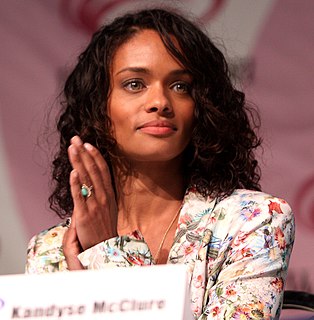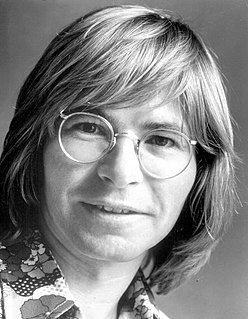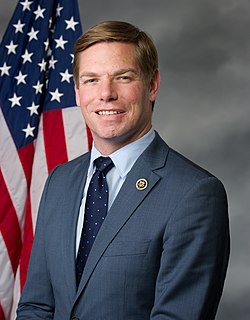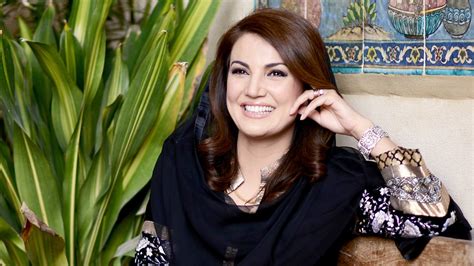A Quote by Kandyse McClure
I love to travel. I think it's the best education to experience how other people live. It reminds us of the abundance and variety we have in the world, but at our essence, we are all the same, we all want the same things: to live well, pursue our dreams, and be happy.
Related Quotes
Instead of loving a God, we love each other. Instead of the religion of the sky-the religion of this world-the religion of the family-the love of husband for wife, of wife for husband-the love of all for children. So that now the real religion is: Let us live for each other; let us live for this world without regard for the past and without fear for the future. Let us use our faculties and our powers for the benefit of ourselves and others, knowing that if there be another world, the same philosophy that gives us joy here will make us happy there.
If we have goals and dreams and we want to do our best, and if we love people and we don’t want to hurt them or lose them, we should feel pain when things go wrong. The point isn’t to live without any regrets, the point is to not hate ourselves for having them… We need to learn to love the flawed, imperfect things that we create, and to forgive ourselves for creating them. Regret doesn’t remind us that we did badly — it reminds us that we know we can do better.
The ideals and the values of the United States inspired the entire world. I don't think any of us can say that our standing in the world now, the way children around the world look at the United States, is the same. And part of what we need to do is to send a message to the world that we are going to invest in issues like education, we are going to invest in issues that relate to how ordinary people are able to live out their dreams. And that is something that I'm going to be committed to as president of the United States.
Solidarity does not assume that our struggles are the same struggles, or that our pain is the same pain, or that our hope is for the same future. Solidarity involves commitment, and work, as well as the recognition that even if we do not have the same feelings, or the same lives, or the same bodies, we do live on common ground.
Despite all the doom and gloom that constantly assaults our senses, there is a way for us to ransom our lives and reclaim our futures: it consists in turning away from the world to recognize what in life makes us truly happy. For each of us, what that is will be different. But once we obtain this inner knowledge, we will possess the ability to transform our outer world. "You can live a lifetime and, at the end of it, know more about other people than you know about yourself," the pilot and writer Beryl Markham reminds us. We cannot let this continue to occur.
All men and women are born, live, suffer and die; what distinguishes us one from another is our dreams, whether they be dreams about worldly or unworldly things, and what we do to make them come about... We do not choose to be born. We do not choose our parents. We do not choose our historical epoch, the country of our birth, or the immediate circumstances of our upbringing. We do not, most of us, choose to die; nor do we choose the time and conditions of our death. But within this realm of choicelessness, we do choose how we live.
I think we are living in an era of being hyper-concerned about, Is it us? Because we have this historical awareness. People really want to know: will it be us or our kids or our grandkids to live through this? We don't want it to happen, we don't want to be the ones with the poisoned water, but at the same time, I think there is this curiosity, like, Am I one of the "lucky" ones who gets to be here at the end? That's the tension I'm interested in.
I want language to help us live in a world of wonder/terror/change. I want it to be about "becoming" rather than "being." I think that being and nouns are part of our hopeless dream that time will stop and we will not die. but it's not that way. So, why not celebrate verbs and the beloved's metamorphosis into other people or creatures or places - the same spirit but moving through things, not static.




































